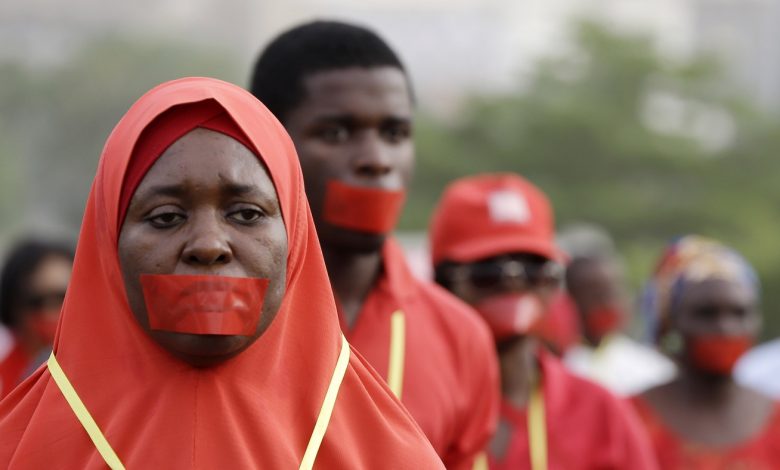Government Must Address Nigeria’s Flourishing Kidnapping For Ransom Industry – Report

At least 18.34 million dollars was paid to kidnappers as ransom between June 2011 and the end of March, 2020, says Lagos based SBM in a report shared on Thursday, titled ” The economics of Nigeria’s kidnap industry”.
It said the government must address factors that have helped the practice to flourish.
The report said four of the top 10 states with a high number of kidnap incidents over the last decade were in the South-South geopolitical zone, with three, Bayelsa, Delta and Rivers, also having the strongest history of Niger Delta Militancy.
Kaduna State in the Northwest had the second-highest number of incidents, the report added.
It said the high fatality rate of kidnap attacks in Borno and Adamawa states were linked to the activities of Boko Haram and a few others linked to militia activities.
The spike in fatalities coincides with the increase in attacks by bandits on villages, especially in Zamfara and Katsina states, a situation which has gradually extended to Kaduna and Niger states, the report stated.
It added that “these bandits have also been involved in kidnapping besides attacking villagers and travellers or doing both at the same time.
“As these kidnaps are less targeted at specific persons, the bandits are less deliberate in avoiding the deaths of their victims compared to earlier kidnap attempts which appeared to have specific targets in mind.”
“This points to the democratisation of insecurity in the North, specifically with respect to kidnapping, which is a huge reversal from a decade and a half ago where kidnapping attempts were mostly in the Niger Delta, before slowly spreading to the Southeast and across the country. Overall, Nigeria is becoming less safe each year,” it stated.
Kidnapping for ransom is sustained by socioeconomic factors and weak law enforcement, SBM stated and pointed out that rising youth unemployment was a major factor responsible for the increase.
“Nigeria’s unemployment rate rose from 18.8 per cent in the third quarter of 2017 to 23.1 per cent in the third quarter of 2018,” the report noted.
It further pointed out that Nigeria had a problem of large swathes of ungoverned spaces – areas of the country that are without government or security presence.
It said this put residents at the mercy of whichever criminal elements were operating at a time in an area.
In Delta State, for example, criminal elements have capitalised on this problem by attacking communities, the report noted.
“One of such incidents was reported in November, 2019, when sea pirates raided Opurudiegbene community in Burutu, carting away generators, household appliances and an unspecified amount of cash. Three children were kidnapped following the attack, and there is no record of them being rescued.
“Kidnap syndicates who operate out of the North rely on big forests as their staging areas. For example, Rigasa and Birnin Gwari are areas in Kaduna with large forests that have been used as hideouts,” it stated.
The report recommended that with the economy set to enter into another recession as a result of the coronavirus pandemic, the government must be deliberate about addressing the country’s myriad problems, including unemployment and insecurity issues that currently afflict a majority of Nigerians.
” In addition to deploying hard solutions, including effectively training, equipping and deploying police and military assets into the most affected areas, addressing inter-agency conflict in order to foster cooperation and coordination, and upskilling police across the country; the federal and state governments must also create the soft regulatory framework to enable effective policing regulation and economic reform that includes a Marshall like Plan for the Northeast and Northwest regions and significant sub-national autonomy that will significantly satisfy the southern regions, particularly the Southeast and the South-South.
“State governments need to take the lead in promoting harmonious relations with long-neglected communities (which will aid intelligence gathering) while engaging with Abuja to develop policies which address their needs as well as offer support to industries within their jurisdictions which possess comparative advantages,” it stated.
Support Our Journalism
There are millions of ordinary people affected by conflict in Africa whose stories are missing in the mainstream media. HumAngle is determined to tell those challenging and under-reported stories, hoping that the people impacted by these conflicts will find the safety and security they deserve.
To ensure that we continue to provide public service coverage, we have a small favour to ask you. We want you to be part of our journalistic endeavour by contributing a token to us.
Your donation will further promote a robust, free, and independent media.
Donate HereStay Closer To The Stories That Matter




